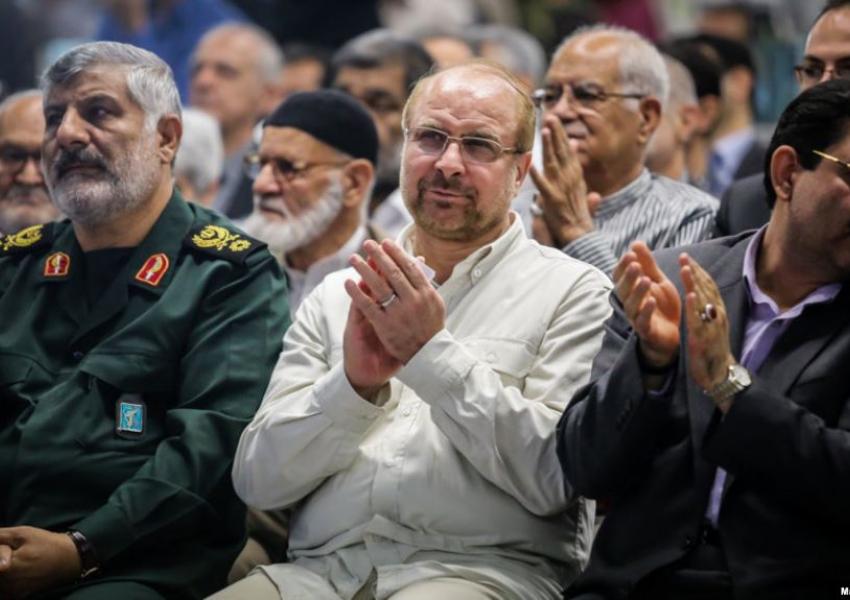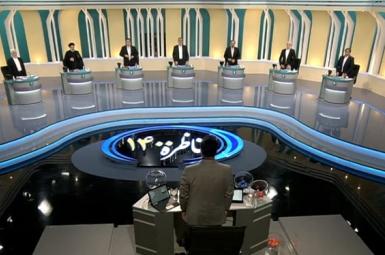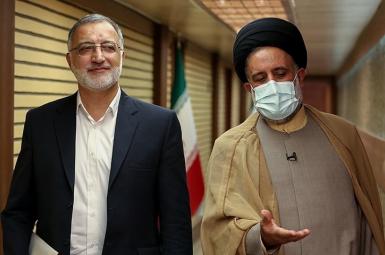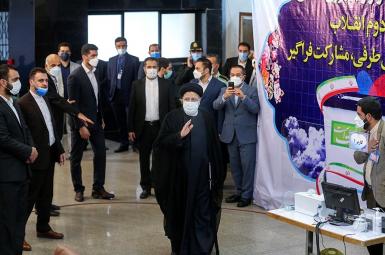
Iran's Parliament Paves The Way For Candidacy Of Generals In Presidential Race
Iranian lawmakers debating an amendment setting candidate eligibility in the existing election law have rejected a suggestion that would prevent military personnel from standing in the June 2021 presidential election. One of those opposing the suggestion on Sunday was the parliamentary speaker, Mohammad Bagher Ghalibaf, who also rejected a milder proposal to bar anyone above the rank of major general.
The amendment actually replaces the candidate eligibility clauses in the existing election law and explicitly spells out what senior officials can run for the office of the president..
According to the reformist newspaper Arman, this has encouraged speculation that Ghalibaf, a former police chief (2000-05) and commander of the Revolutionary Guards air force (1997-2000), intends to stand in June’s election. Any limitation on the candidacy of senior Revolutionary Guards officers would lead to controversy if Ghalibaf decided to run.
Iranian military commanders have been among the candidates in most presidential elections. Ghalibaf stood in 2005 and 2013. Mohsen Rezaei, a former IRGC commander-in-chief, stood in 2009 and 2013.
Hossein Dehghan, a former brigadier general and defense minister now a military adviser to Supreme Leader Ali Khamenei, has said he will be a presidential candidate in June. The chief of Khatam ol-Anbia Headquarters, the IRGC’s construction arm, General Saeed Mohammad may also stand. General Ali Shamkhani, Secretary of the Supreme National Security council (SNSC), was a candidate in 2001.
The reformist daily Arman expressed unease over soldiers running for office: “Military personnel’s candidacy in the presidential election has never been welcomed in Iran. Many experts have opposed the idea of having a military officer as a presidential candidate, mainly because the founder of the Islamic Republic Ayatollah Ruhollah Khomeini clearly barred military personnel from political activities including candidacy in elections.”
According to the daily, some have criticized the Majles stating that the new regulations are so tailored in a way to suit the parliamentary speaker that they have called the amendment to the election law “an amendment for Ghalibaf.”
The influential daily newspaper Jomhouri Eslami has also expressing its opposition to military men running for president. “Military personnel’s entry into the presidential election will damage their image,” an editorial said on Sunday. “And their presence as possible president will also damage the military’s prestige as Iranian Presidents always face a tough job.”
The daily noted that “military officers become president in other countries either by staging a coup or in very rare cases by winning elections…military officers as presidents in Iran’s neighboring countries such as Iraq, Turkey, and Pakistan have left bitter legacies...”
The daily further called on the Guardian Council, the constitutional watchdog, to reject the amendment to the Election Law and let the military “mind its own business.”
The amendment, which passed the parliament on December 22, includes a clause that allows the candidacy of the secretaries of the Supreme Council of National Security (currently Shamkhani) and the Expediency Council (currently Rezaei). Later during the Majles session the lawmakers replaced the word ‘secretaries’ with the word ‘members’ to probably eliminate the suspicion of paving the way for military officers.








